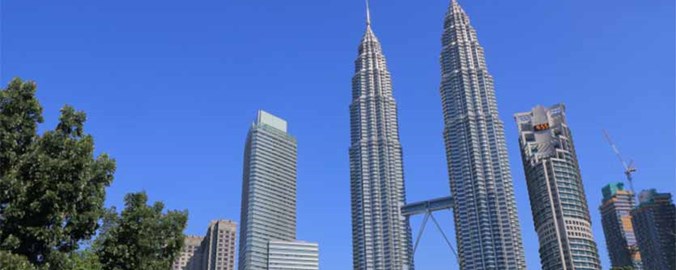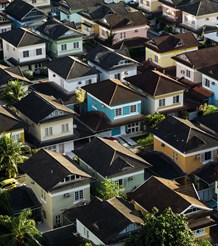
Improved Outlook for Malaysian Real Estate in 2016
According to a survey by Malaysian property portal iProperty.com, 2016 is set to show significant improvement in the country's ailing property markets. The iProperty.com Asia Property Market Sentiment Survey (H2) 2015 reveals that Malaysia's domestic market is still hampered by affordability issues and many respondents indicated they are most likely to have saved a down payment within the next two years.
Malaysia's property market has softened considerably this year due to cooling measures implemented by its government including stricter and more stringent loan requirements. According to a report published by Malaysia's Real Estate and Housing Developers Association (REHDA), loan rejection rates in the country have been reported to be as high as 70%, negatively impacting the country's property market.
REHDA suggests buyers are finding it difficult to purchase affordable homes. Apart from narrowing down the selection criteria where the margin of financing (MOF) is often below 90%, the debt servicing ratio (DSR) has also been made more restrictive by central bankers Bank Negara Malaysia (BNM).
Goods and Services Tax (GST) was implemented across the board on 1st April 2015 and while a pre-GST sales rush was anticipated, property transactions in the first quarter of the year fell by 4.6% from 92,900 for the same period in 2014, based on year-on-year transactions.
New property prices are estimated to have increased by 3.97% due to higher material costs and developers are estimated to have increased their prices by approximately 4%. A new government ruling allows developers to claim a 6% rebate for GST while still being able to pass the surcharge on to purchasers.
While Malaysia's property market has achieved relative stability compared with the bull run of recent years, it is perceived that this is largely due to the economic situation in the country and not because of the implementation of GST. Domestic buyers are increasingly unable to enter the property market at affordable levels which has resulted in market stagnation in certain regions of Malaysia.
However, respondents to the iProperty.com survey were largely of the opinion that economic recovery will continue at a modest pace, allowing them the opportunity to purchase property in the next 1-2 years. The government has stepped up construction activity to meet the critical demand levels for affordable housing and when supply increases, prices should ease a little in the domestic market.
In terms of foreign investment in Malaysian real estate, the fall in the ringgit in recent quarters has attracted considerable investment in the country. However, foreigners are only allowed to buy high-rise units priced at least €200,000, reserving availability of family homes for local homebuyers.
REHDA President Datuk Seri F D Iskandar said that Malaysia's property market should take advantage of increased interest from foreign buyers and promote their properties in overseas markets. He feels that as foreigners look for upmarket properties in specific areas, their value will remain buoyant, he told a media briefing on the property industry in September.
Meanwhile, Iskandar expects property price hiccups for high-rise buildings, apartments and condominiums due to the weakening of the ringgit. "The prices of certain construction materials have actually gone up but that of residential buildings shouldn't as most of the components are locally sourced. However for high-rise buildings, components like lifts, escalators and air-conditioning are still imported. Definitely, there would be hiccups in terms of prices for high-rise projects," he said.




